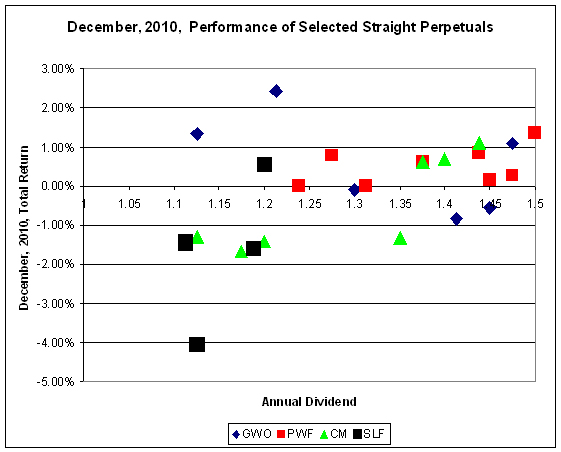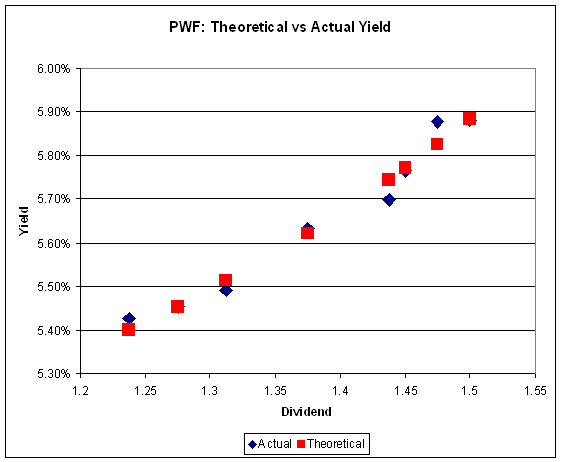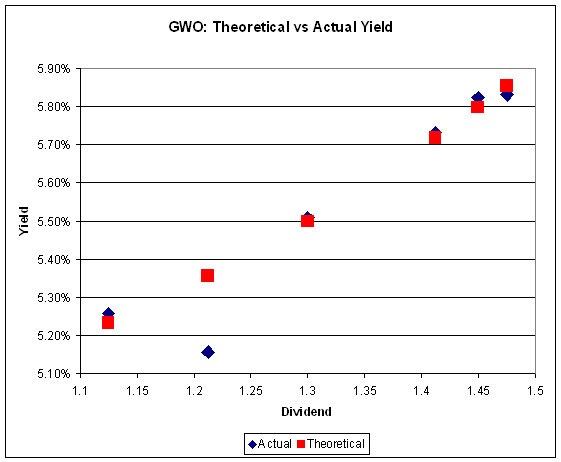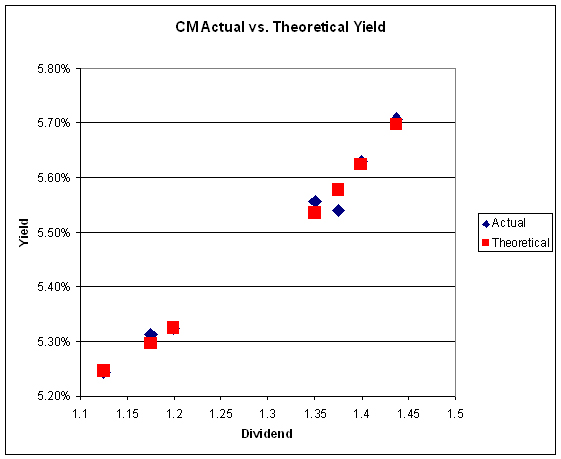European bank regulation may become far more intrusive:
National regulators of cross-border banks may be able to require “changes to legal or operational structures” if the lender would need “extraordinary public financial support” during a crisis, according to draft proposals obtained by Bloomberg News.
…
The plan also envisages measures “requiring the credit institution to limit its maximum individual and aggregate exposures” or forcing banks to “limit or cease” some activities, according to the document, dated December 2010.Regulators should assess lenders and “satisfy themselves that critical functions could be legally and economically separated from other functions” during a crisis, according to the draft proposals.
I can’t think of a better way to reinforce structural groupthink.
Japan has interesting bond sales methods:
Japan will sell a record 144.9 trillion yen ($1.8 trillion) of debt in the fiscal year starting April 1, it said in a budget plan on Dec. 24 that also detailed the changes in its retail bonds. The Ministry of Finance tried to find new buyers for the debt last year with magazine advertisements saying, “Men who hold JGBs are popular with women!”
An investor who decided to buy floating-rate retail notes after reading the ads would have seen yields shrink to a range of 0.25 percent to 0.53 percent at the twice-yearly coupon payouts for the 10-year securities.
I mentioned the Greg Walsh kerfuffle briefly on December 30 – he’s the Peterborough hockey coach who had hysterics when one of his players was called a nasty name. The blog dahn batchelor’s opinions also posted on the topic in a post titled A foul-mouthed brat caused this problem; I left a comment on the moderated blog, but it hasn’t appeared yet, possibly due to a technical problem. So I’ll publish it here:
I am surprised that someone with such a lengthy profile would publish such a shoddy analysis.
You acknowledge that the players were in an on-ice confrontation and that they heckled each other in the penalty box. You profess dismay at the idea that the heckling included the word “nigger” and substitute “brat” as your own politically correct childish insult of choice – both in the headline and the text.
These kids are 16-17 years old – more balls than brains if my own recollections of adolescence can be trusted. Sometimes they say stupid things. Surprise! Not everybody invariably chooses their words as carefully as a retired lawyer tapping away at his keyboard in his surroundings of choice.
What should the punishment be for such a breach of public dignity in the context of a schoolyard yelling match? A three game suspension sounds harsh to me, but it’s not so harsh that I care much one way or the other.
What should the punishment be? Walsh seems to think it should involve a public apology – at best a lesson in hypocrisy, at worst a public humiliation of the kind civilized nations have eliminated from the criminal code.
Your own rather incoherent response seems to include coaches – the ones who should support their players – imposing extra-judicial punishment, benching them for the rest of the game. Unable to find any other support in today’s world for your thesis, you are forced to dredge up a case from thirty-seven years ago, and the recollections of a 54-year old man speculating on what he thinks he would have done differently.
The PMHA seems to think that penalties should include a criminal record.
In a year or two, these kids will be eligible to go to Afghanistan, where the Taliban may well call them nasty names and even – gasp! – hit them with sticks. It really is too bad that Greg Walsh, Dahn Batchelor and others are attempting to prepare them for the rigors and conflicts of adulthood by telling them that the way to deal with adversity is to run home crying to mommy.
Jackie Robinson would never even have been able to watch major league baseball with that attitude.
I hadn’t known that the PMHA had gone to the police about this. My lord, don’t they realize that when there are horrific penalties for minor transgressions, you simply get selective reporting? Or don’t they care? Or do they, in their heart of hearts, believe that this shouting match is worthy of police time and a possible criminal record? But then, we live in a world with some very strange priorities – or, at least, one in which very strange rationales are given credence by the press.
The Canadian preferred share market had a good day as volume returned to more normal levels. PerpetualDiscounts gained 15bp and FixedResets lost 3bp.
| HIMIPref™ Preferred Indices These values reflect the December 2008 revision of the HIMIPref™ Indices Values are provisional and are finalized monthly |
|||||||
| Index | Mean Current Yield (at bid) |
Median YTW |
Median Average Trading Value |
Median Mod Dur (YTW) |
Issues | Day’s Perf. | Index Value |
| Ratchet | 0.00 % | 0.00 % | 0 | 0.00 | 0 | 0.0247 % | 2,306.7 |
| FixedFloater | 4.81 % | 3.54 % | 29,863 | 18.93 | 1 | 0.3107 % | 3,495.6 |
| Floater | 2.59 % | 2.39 % | 47,834 | 21.24 | 4 | 0.0247 % | 2,490.6 |
| OpRet | 4.77 % | 3.14 % | 60,796 | 2.34 | 8 | 0.2442 % | 2,403.6 |
| SplitShare | 5.36 % | 1.29 % | 719,531 | 0.92 | 4 | -0.3930 % | 2,437.2 |
| Interest-Bearing | 0.00 % | 0.00 % | 0 | 0.00 | 0 | 0.2442 % | 2,197.9 |
| Perpetual-Premium | 5.64 % | 5.29 % | 126,768 | 5.30 | 20 | -0.0255 % | 2,018.9 |
| Perpetual-Discount | 5.43 % | 5.49 % | 235,000 | 14.69 | 57 | 0.1544 % | 2,032.4 |
| FixedReset | 5.22 % | 3.42 % | 310,251 | 3.08 | 52 | -0.0302 % | 2,270.9 |
| Performance Highlights | |||
| Issue | Index | Change | Notes |
| BNS.PR.X | FixedReset | -1.23 % | YTW SCENARIO Maturity Type : Call Maturity Date : 2014-05-25 Maturity Price : 25.00 Evaluated at bid price : 27.32 Bid-YTW : 3.27 % |
| BNA.PR.E | SplitShare | -1.22 % | YTW SCENARIO Maturity Type : Hard Maturity Maturity Date : 2017-12-10 Maturity Price : 25.00 Evaluated at bid price : 24.35 Bid-YTW : 5.38 % |
| CM.PR.L | FixedReset | -1.19 % | YTW SCENARIO Maturity Type : Call Maturity Date : 2014-05-30 Maturity Price : 25.00 Evaluated at bid price : 27.37 Bid-YTW : 3.43 % |
| FTS.PR.G | FixedReset | -1.17 % | YTW SCENARIO Maturity Type : Call Maturity Date : 2013-10-01 Maturity Price : 25.00 Evaluated at bid price : 26.26 Bid-YTW : 3.45 % |
| NA.PR.N | FixedReset | 1.16 % | YTW SCENARIO Maturity Type : Call Maturity Date : 2013-09-14 Maturity Price : 25.00 Evaluated at bid price : 27.01 Bid-YTW : 2.48 % |
| SLF.PR.G | FixedReset | 1.18 % | YTW SCENARIO Maturity Type : Limit Maturity Maturity Date : 2041-01-04 Maturity Price : 23.42 Evaluated at bid price : 25.75 Bid-YTW : 3.62 % |
| GWO.PR.M | Perpetual-Discount | 1.20 % | YTW SCENARIO Maturity Type : Call Maturity Date : 2019-04-30 Maturity Price : 25.00 Evaluated at bid price : 25.20 Bid-YTW : 5.73 % |
| TD.PR.N | OpRet | 1.36 % | YTW SCENARIO Maturity Type : Call Maturity Date : 2011-02-03 Maturity Price : 25.75 Evaluated at bid price : 26.15 Bid-YTW : -4.90 % |
| SLF.PR.A | Perpetual-Discount | 1.63 % | YTW SCENARIO Maturity Type : Limit Maturity Maturity Date : 2041-01-04 Maturity Price : 21.85 Evaluated at bid price : 21.85 Bid-YTW : 5.48 % |
| BAM.PR.T | FixedReset | 1.76 % | YTW SCENARIO Maturity Type : Limit Maturity Maturity Date : 2041-01-04 Maturity Price : 23.04 Evaluated at bid price : 24.84 Bid-YTW : 4.55 % |
| SLF.PR.E | Perpetual-Discount | 3.16 % | YTW SCENARIO Maturity Type : Limit Maturity Maturity Date : 2041-01-04 Maturity Price : 20.54 Evaluated at bid price : 20.54 Bid-YTW : 5.52 % |
| Volume Highlights | |||
| Issue | Index | Shares Traded |
Notes |
| PWF.PR.M | FixedReset | 93,800 | National bought blocks of 15,000 and 10,000 from Nesbitt, both at 27.00; then crossed 45,000 at the same price. YTW SCENARIO Maturity Type : Call Maturity Date : 2014-03-02 Maturity Price : 25.00 Evaluated at bid price : 27.00 Bid-YTW : 3.64 % |
| RY.PR.E | Perpetual-Discount | 63,526 | RBC crossed 39,500 at 22.07. YTW SCENARIO Maturity Type : Limit Maturity Maturity Date : 2041-01-04 Maturity Price : 21.92 Evaluated at bid price : 22.04 Bid-YTW : 5.17 % |
| RY.PR.A | Perpetual-Discount | 54,930 | RBC crossed 25,500 at 22.00, then crossed 15,000 at 22.04. YTW SCENARIO Maturity Type : Limit Maturity Maturity Date : 2041-01-04 Maturity Price : 21.97 Evaluated at bid price : 22.10 Bid-YTW : 5.09 % |
| TD.PR.M | OpRet | 34,000 | RBC crossed 25,000 at 25.85. YTW SCENARIO Maturity Type : Call Maturity Date : 2011-05-30 Maturity Price : 25.50 Evaluated at bid price : 25.86 Bid-YTW : 3.14 % |
| SLF.PR.A | Perpetual-Discount | 31,230 | Desjardins crossed 16,000 at 21.85. YTW SCENARIO Maturity Type : Limit Maturity Maturity Date : 2041-01-04 Maturity Price : 21.85 Evaluated at bid price : 21.85 Bid-YTW : 5.48 % |
| BNS.PR.T | FixedReset | 29,924 | rBC crossed 25,000 at 27.40. YTW SCENARIO Maturity Type : Call Maturity Date : 2014-05-25 Maturity Price : 25.00 Evaluated at bid price : 27.27 Bid-YTW : 3.31 % |
| There were 25 other index-included issues trading in excess of 10,000 shares. | |||



